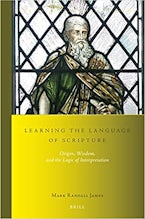
Learning the Language of Scripture
Origen, Wisdom, and the Logic of Interpretation
Series: Studies in Systematic Theology
356 Pages
- eBook
- ISBN: 9789004448544
- Published By: Brill
- Published: January 2021
$68.00

Series: Studies in Systematic Theology
356 Pages
$68.00